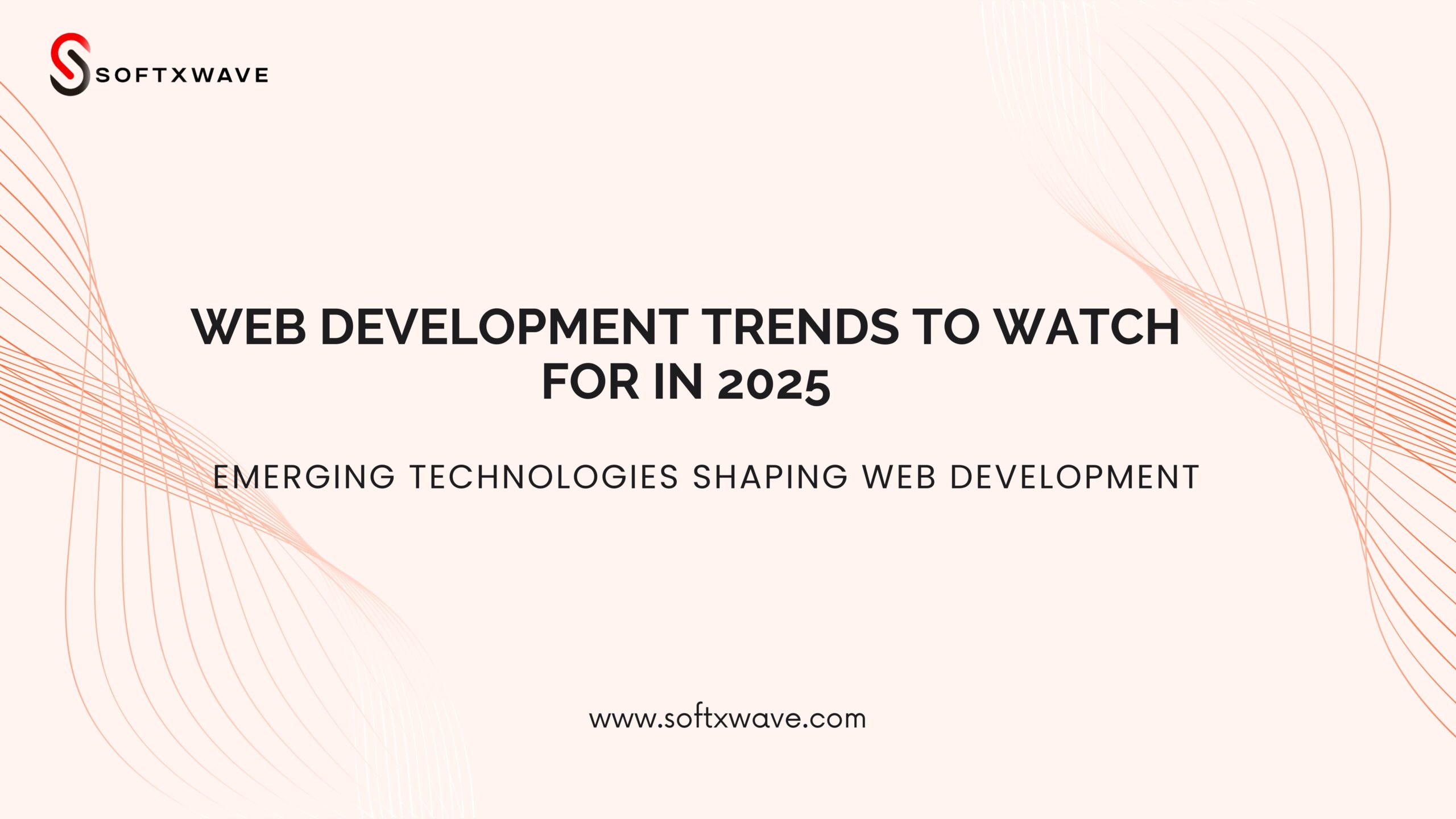
As you navigate the ever-evolving landscape of web development, staying ahead of emerging trends is crucial for your success. The year 2025 promises to bring groundbreaking advancements that will reshape the way you design, build, and interact with websites. From cutting-edge technologies to innovative user experiences, the future of web development is both exciting and challenging. In this article, you’ll discover the key trends that will dominate the industry in 2025, enabling you to prepare for the next wave of digital transformation. By embracing these upcoming changes, you’ll position yourself at the forefront of web development, ready to create captivating and efficient online experiences for users worldwide.
The Rise of No-Code and Low-Code Platforms
Empowering Citizen Developers
The future of web development is being shaped by a revolutionary trend: the rise of no-code and low-code platforms. These innovative tools are democratizing software creation, allowing non-technical users to build functional applications with minimal coding knowledge. According to Gartner, the low-code/no-code market is projected to reach $26.9 billion in 2023, highlighting the growing demand for these solutions.
Accelerating Development and Reducing Costs
No-code and low-code platforms are transforming the web development landscape by offering visual interfaces and pre-built components. This approach significantly accelerates the development process, with businesses experiencing up to 90% faster development and deployment compared to traditional methods. As we look towards web development trends in 2025, these platforms are poised to play a crucial role in addressing the global developer shortage and reducing IT dependency.
Balancing Simplicity and Functionality
While no-code and low-code platforms offer numerous advantages, it’s essential to consider their limitations. As noted by Gojilabs, these tools may face challenges with complex applications and scalability. However, as front-end frameworks and back-end technologies continue to evolve, we can expect these platforms to become increasingly sophisticated, offering a balance between ease of use and powerful functionality in the future of web development.
JavaScript Frameworks That Will Dominate Front-End Development
As we look ahead to the future of web development trends in 2025, JavaScript frameworks continue to play a pivotal role in shaping the landscape of front-end development. These powerful tools are evolving to meet the demands of modern web applications, offering developers enhanced capabilities and improved performance.
React: The Reigning Champion
React.js is expected to maintain its position as the industry leader, thanks to its robust ecosystem and component-based architecture. Its virtual DOM and extensive library of reusable components make it a go-to choice for building dynamic user interfaces.
Vue.js: The Rising Star
Vue.js is gaining traction due to its simplicity and flexibility. Its progressive nature allows for easy integration with existing projects, making it an attractive option for developers seeking a gentle learning curve.
Angular: Enterprise-Grade Solutions
Angular, backed by Google, remains a powerhouse for large-scale applications. Its comprehensive feature set and focus on maintainability make it a preferred choice for enterprise-level projects requiring scalability and robustness.
Svelte: The Efficiency Innovator
Svelte’s unique approach of compiling components at build time is garnering attention. Its promise of zero runtime overhead positions it as a future favorite for developers prioritizing performance and efficiency in their web applications.
As these frameworks continue to evolve, they will shape the front-end technologies of 2024 and beyond, offering developers powerful tools to create engaging and high-performance web experiences.
What Back-End Technologies Will Be Popular in 2025?
Established Frameworks Remain Strong
As we look towards the future of web development, several back-end technologies are poised to dominate in 2025. Express.js is expected to maintain its popularity for Node.js applications, thanks to its versatile design and robust middleware support. Similarly, Django continues to be a top choice for Python enthusiasts, offering a “batteries-included” approach that accelerates development.
Rising Stars in Back-End Development
JavaScript and Python are projected to be among the top backend development languages in 2025, alongside Java, Perl, and Ruby. This diversity reflects the evolving needs of web development projects and the importance of choosing the right tool for specific requirements.
Embracing New Paradigms
The landscape of back-end technologies in 2024 is not just about programming languages and frameworks. Serverless architecture is gaining significant traction, allowing developers to build and run applications without managing server infrastructure. This approach offers enhanced scalability and cost-efficiency, aligning with the future of web development trends.
As we navigate these exciting changes, it’s clear that the back-end technologies of 2025 will offer a blend of established reliability and innovative solutions, shaping the next era of web development.
The Impact of AI on Web Development
Revolutionizing Design and Development
Artificial Intelligence (AI) is poised to revolutionize web development trends 2024 and beyond. By 2025, AI-powered design tools are expected to become more sophisticated, enabling developers to create responsive, visually appealing websites with unprecedented ease. These tools will provide real-time design recommendations and automate routine tasks, significantly streamlining the development process.
The future of web development will likely see AI automating code generation, helping developers write cleaner, more efficient code. This automation extends to testing procedures and quality assurance, potentially reducing human error and accelerating project timelines.
Enhancing User Experience and Personalization
AI is set to transform user experiences through advanced personalization. By analyzing user data, AI algorithms can deliver highly customized content and anticipate user needs, potentially increasing conversion rates by up to 25%. This level of personalization will become increasingly crucial in creating engaging, user-centric websites.
No-code and low-code platforms are also expected to evolve, incorporating AI to further simplify web development for non-technical users. These platforms will likely offer more sophisticated features, bridging the gap between professional developers and citizen developers.
Advancing Security and Performance
In the realm of web security, AI-driven measures are becoming more robust. By 2025, we can expect AI to play a pivotal role in identifying potential vulnerabilities and preventing attacks in real-time. This proactive approach to security will be essential in protecting websites against increasingly sophisticated cyber threats.
As front-end frameworks and back-end technologies 2024 continue to evolve, AI will be instrumental in optimizing website performance. From improving load times to enhancing SEO, AI algorithms will work behind the scenes to ensure websites not only look great but also perform exceptionally well.
Will Web 3.0 and the Metaverse Transform the Internet?
As we look towards the future of web development, two interconnected concepts are poised to revolutionize our online experiences: Web 3.0 and the Metaverse. These emerging technologies are set to redefine how we interact with the digital world, presenting both exciting opportunities and unique challenges for developers and businesses alike.
The Promise of Web 3.0
Web 3.0, also known as the semantic web, represents the next evolution of the internet. It focuses on decentralization, openness, and improved user utility, leveraging blockchain technology to enable secure and transparent applications. This new paradigm promises to give users greater control over their data and digital identities, potentially disrupting the current model dominated by large tech platforms.
The Metaverse: A New Digital Frontier
The Metaverse, a persistent and immersive virtual universe, is closely intertwined with Web 3.0 technologies. It offers businesses unprecedented opportunities to create unique customer experiences, establish virtual storefronts, and host engaging events. As front-end frameworks and back-end technologies 2024 continue to advance, we can expect increasingly sophisticated and seamless Metaverse experiences.
Challenges and Opportunities
While the potential of Web 3.0 and the Metaverse is immense, their implementation comes with challenges. Developers will need to grapple with technical complexities, regulatory uncertainties, and cybersecurity threats. However, those who can navigate these hurdles stand to benefit from the rise of no-code and low-code platforms, which may democratize development in this new digital landscape.
As we approach 2025, it’s clear that web development trends are increasingly intertwined with these transformative technologies. The future of web development lies in embracing these changes and leveraging them to create more immersive, secure, and user-centric online experiences.
Conclusion
As you prepare for the future of web development, staying ahead of these emerging trends will be crucial. By embracing AI-powered tools, prioritizing accessibility, leveraging edge computing, and exploring immersive technologies, you’ll position yourself at the forefront of the industry. Remember that adaptability and continuous learning will be your greatest assets in this rapidly evolving field. The web development landscape of 2025 promises exciting opportunities for those willing to embrace change and innovation. By keeping these trends in mind and honing your skills accordingly, you’ll be well-equipped to create cutting-edge web experiences that meet the demands of tomorrow’s users and businesses alike.




